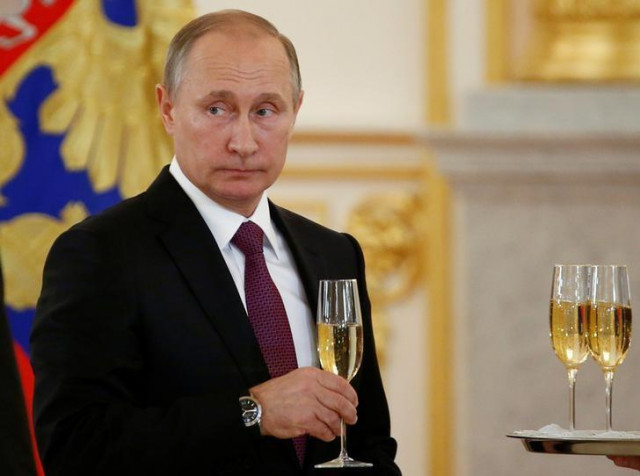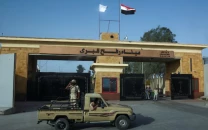Wave of defections: Russia rejects ICC’s founding statute
Move follows departure of South Africa, Burundi and The Gambia from court

Russia's President Vladimir Putin holds a glass during a ceremony. PHOTO: REUTERS
Moscow has never ratified the world's only permanent war crimes court, but in a heavily symbolic move on the opening day of the ICC's annual meeting, it said it was formally withdrawing its signature to the tribunal's founding Rome Statute.
"The court did not live up to the hopes associated with it and did not become truly independent," Russia's foreign ministry said, describing its work as ‘one-sided and inefficient’.
The move came only days after The Gambia on Monday formally notified the United Nations it was leaving the ICC, following in the footsteps of South Africa and Burundi.

"Don't go," pleaded Senegalese minister Sidiki Kaba, the president of the ICC's Assembly of State Parties as he opened an eight-day meeting. "In a world criss-crossed by violent extremism... it is urgent and necessary to defend the ideal of justice for all."
In his passionate plea, Kaba admitted the ICC was undergoing a ‘difficult moment’.
With Russia and China having blocked UN moves to refer war crimes in Syria to the ICC for investigation, Kaba acknowledged some believed international justice was marred by ‘double standards’. But he offered reassurances, saying: "You have been heard."
There have long been accusations of bias against African nations. And Kenya, Namibia and Uganda have also indicated they are considering pulling out of the Rome Statute.
South Africa's Justice Minister Michael Masutha told the assembly the decision to quit "was not taken lightly" by his country, which had played a major role in drawing up the founding statute. He argued South Africa had been treated unfairly by the court when it did not arrest visiting Sudanese President Omar al Bashir, even though the ICC has issued an international warrant for his arrest on war crimes charges.
Pretoria had found itself caught in a dilemma, with ‘conflicting obligations’ to uphold both the ICC's rules and international law granting immunity to heads of state, Masutha said, insisting his country "would not become a safe haven for fugitives."
Chief prosecutor Fatou Bensouda insisted however that the withdrawals were not a "crisis" adding her office would continue "to forge ahead to deliver on its important mandate".
Published in The Express Tribune, November 17th, 2016.



















COMMENTS
Comments are moderated and generally will be posted if they are on-topic and not abusive.
For more information, please see our Comments FAQ